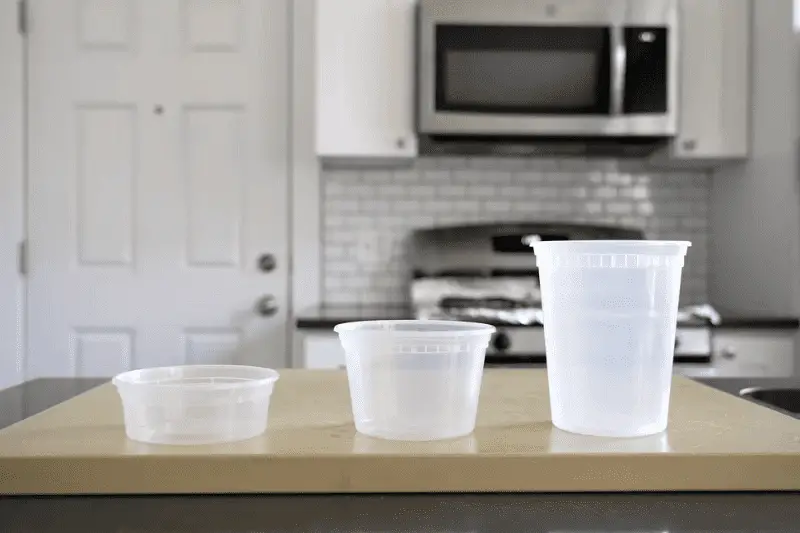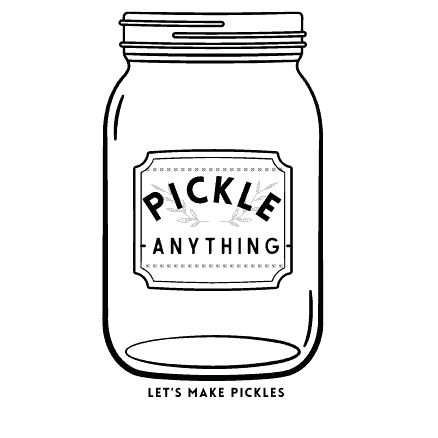Pickling is a traditional method of preserving foods, typically involving the use of a brine solution made from vinegar, salt, and water.
The pickling process creates an acidic environment that inhibits the growth of harmful bacteria, allowing the food to last longer and develop unique flavors.

Benefits of Pickling
Pickling offers numerous benefits, including:
- Extending the shelf life of perishable foods
- Enhancing flavor profiles
- Providing probiotics for a healthy gut
- Reducing food waste by preserving excess produce
Deli Containers: An Overview
Types of Deli Containers
Deli containers are commonly used for storing and transporting food items. They come in various sizes, shapes, and materials, including:
- Plastic (polypropylene and polyethylene)
- Glass
- Stainless steel
Pros and Cons of Using Deli Containers
Pros:
- Lightweight and portable
- Affordable and readily available
- Airtight seals to maintain freshness
Cons:
- Some plastic deli containers may not be food-grade quality
- Potential for chemical leaching in lower-quality plastics
Pickling in Deli Containers
Safety Concerns
While deli containers may seem like a convenient option for pickling, there are a few safety concerns to consider. First and foremost, ensure that the deli container is made from food-grade materials. Some plastics may leach harmful chemicals into your pickles, compromising the quality and safety of your preserved foods.
Tips for Successful Pickling in Deli Containers
- Use BPA-free, food-grade plastic containers to prevent chemical leaching
- Ensure the container has an airtight seal to prevent spoilage
- Allow proper headspace for expansion during the pickling process
- Use a clean, sanitized container to prevent contamination
Alternative Containers for Pickling
Mason Jars
Mason jars are the gold standard for pickling due to their sturdy glass construction and reliable sealing mechanism. They are specifically designed for preserving foods and are widely available in various sizes.
Food-Grade Plastic Containers
If you prefer using plastic, opt for food-grade plastic containers that are BPA-free and specifically designed for food storage. These containers are less prone to chemical leaching and offer a safer pickling experience.
Glass Containers
Glass containers with airtight lids are another excellent option for pickling. They are non-reactive and won’t leach harmful chemicals into your pickles. Ensure that the glass container has an airtight seal to maintain freshness and prevent spoilage.
Conclusion
In conclusion, while you can pickle in deli containers, it is crucial to ensure that they are made from food-grade materials and have airtight seals to maintain freshness and prevent contamination. For best results, consider using mason jars or food-grade plastic containers specifically designed for food storage. Ultimately, the key to successful pickling is to create an acidic environment that inhibits bacterial growth while using appropriate containers that maintain the integrity of the preserved foods.
FAQs
1. Can I pickle in any deli container?
Not all deli containers are suitable for pickling. Ensure that the container is made from food-grade materials and has an airtight seal. Avoid using low-quality plastic containers that may leach harmful chemicals into your pickles.
2. What should I look for in a pickling container?
A suitable pickling container should be made from food-grade materials, have an airtight seal, and be non-reactive to the pickling solution. Mason jars, food-grade plastic containers, and glass containers with airtight lids are all excellent choices.
3. Can I reuse deli containers for pickling?
Yes, you can reuse deli containers for pickling, provided they are made from food-grade materials and have been thoroughly cleaned and sanitized before use. Always inspect the container for any signs of damage or wear that may compromise its seal or safety.
4. Are there any benefits to using deli containers for pickling over other containers?
Deli containers may offer some benefits, such as being lightweight, portable, and affordable. However, these benefits may be outweighed by potential safety concerns associated with low-quality plastics. It is generally recommended to use containers specifically designed for food preservation, such as mason jars, for pickling.
5. How long can I store pickled foods in deli containers?
The shelf life of pickled foods stored in deli containers depends on the quality of the container and how well it seals. Properly sealed, high-quality deli containers can keep pickled foods fresh for several months in the refrigerator. However, mason jars or other containers specifically designed for food preservation may provide a longer shelf life.
